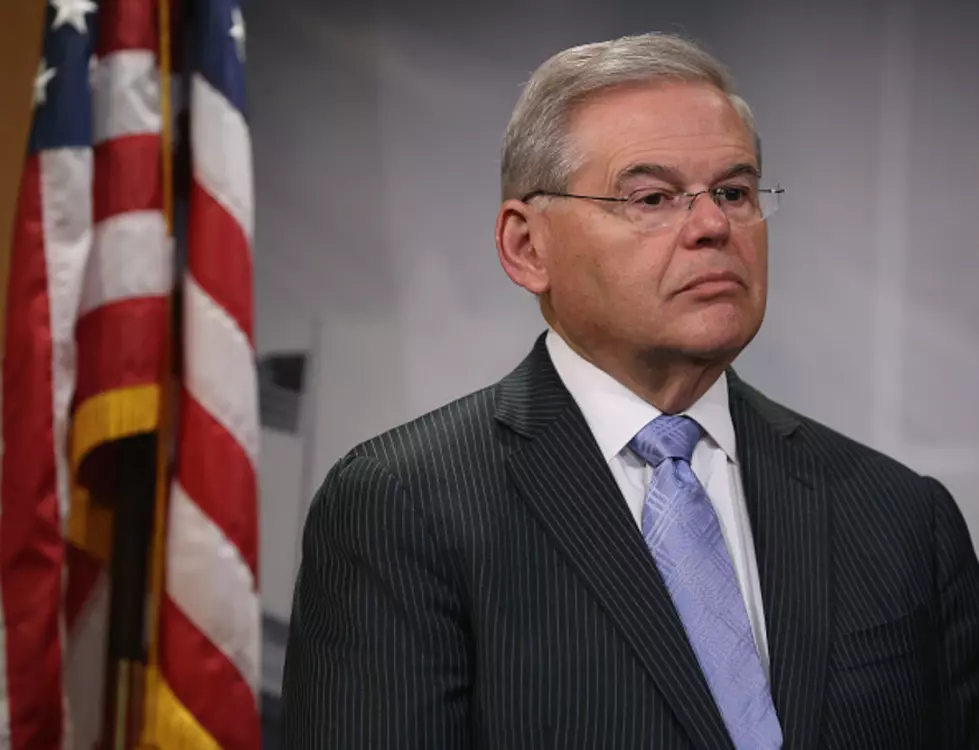
Obama’s fellow Democrats skeptical of Iran nuclear deal
WASHINGTON (AP) -- President Barack Obama's fellow Democrats expressed skepticism Tuesday about the landmark Iranian nuclear deal the U.S. and its partners just reached with Tehran.
Under the historic accord, Iran's nuclear program would be curtailed in exchange for billions of dollars in relief from international sanctions. The agreement aims to avert the threat of a nuclear-armed Iran and another U.S. military intervention in the Middle East.
"I was skeptical at the beginning of this process, and I remain skeptical of the Iranians," said Rep. Steve Israel, the highest ranking Jewish Democrat in the House. "In the fall, there will be a vote on this deal, and my obligation is to review every word, sentence and paragraph of the deal to ensure it satisfies my continued concerns. Until then, you can continue to count me in the `skeptical' column."
Many Republicans, as expected, are vehemently opposed to the agreement. That's not surprising since the GOP-led House invited Israeli Prime Minister Benjamin Netanyahu to speak before a joint meeting of Congress earlier this year. Netanyahu assailed the negotiations with Iran, which has threatened to destroy Israel.
"It's like giving an alligator more teeth and thinking now they may be nice to you," said Rep. Ted Yoho, R-Florida.
Senate Majority Leader Mitch McConnell of Kentucky said the agreement was flawed because "the Obama Administration approached these talks from a flawed perspective: reaching the best deal acceptable to Iran, rather than actually advancing our national goal of ending Iran's nuclear program."
Republican Rep. Ed Royce of California, chairman of the House Foreign Affairs Committee, minced no words in expressing his skepticism of what he said would be a "tough sell" in Congress. "Iran won't even have to cheat on this agreement to be a small step away from the bomb, dominate the region and boost its oppressive regime at home," he said.
After receiving a copy of the agreement, lawmakers will have 60 days to read the fine print, vote yea or nay - or take no action.
If Congress votes to disapprove it, President Barack Obama is expected to veto the decision in defense of the deal. He reiterated Tuesday he would do just that, if necessary. A two-thirds majority in both the House and Senate would be needed to override a veto.
However, even if Congress votes to disapprove, it doesn't scuttle the agreement. The only way Congress can thwart the Iran deal is by passing new sanctions legislation or stripping away the authority Obama currently has to waive those sanctions that were imposed earlier by Congress. Moreover, even if Congress rejects the deal with Tehran, Obama could use his executive pen to offer a hefty portion of sanctions relief on his own. He could take unilateral actions that - when coupled with European and U.N. sanctions relief - would allow him to implement the deal. Obama can't lift the congressionally mandated sanctions; only Congress can do that.
"I am confident that this deal will meet the national security interest of the United States and our allies," Obama said in announcing the deal at the White House. "So I will veto any legislation that prevents the successful implementation of this deal."
Expect the deal to be dissected and turned inside out in both the House and Senate.
Lawmakers will scan its pages to find out: Does it call for anytime, anywhere inspections of Iranian nuclear and military sites? What sanctions against Iran will be lifted and when? Can sanctions be reinstated if Iran cheats? Did Iran come clean regarding its past nuclear activities? How long will Iran be prevented from developing nuclear weapons? And that's just for starters.
The foreign relations committees in both chambers - and possibly other panels on intelligence and the armed services - are expected to quickly schedule hearings. It appears unlikely, though, that Congress will take any formal action before the August recess, when they most certainly will hear from constituents on the issue. Secretary of State John Kerry, the lead U.S. negotiator of the deal, could be called to testify and probably will be asked to give lawmakers classified briefings on the deal.
When it comes to a vote, all eyes will be on Democrats to figure out whether they will back the deal brokered by the administration or turn their back on the president, as many of his fellow Democrats did in a recent battle involving trade negotiating authority for presidents.
Key senators to watch:
-New York Sen. Chuck Schumer, the No. 3 Democrat in the chamber. Like some other Democrats, he has strong ties to Jewish constituents worried about emboldening Iran.
-Maryland Sen. Ben Cardin, the ranking Democrat on the Senate Foreign Relations Committee, who was instrumental in getting legislation passed giving Congress a chance to weigh in on any agreement.
-New Jersey Sen. Bob Menendez, a Democrat who has bucked the White House by voicing skepticism that Iran can be trusted to abide by terms of any deal.
They have not yet commented on the agreement.
Ron Dermer, the Israeli ambassador to the United States, and various Jewish advocacy groups have heavily lobbied lawmakers against signing any agreement with Iran.
"He is a very informed and persuasive advocate for the Israeli perspective and he is a persistent and thorough critic of the context of these negotiations and he made some very strong points," said Sen. Chris Coons, D-Del. "We got to teasing each other. I ran into him three times as he was coming in or out of other offices."
Coons and other Democrats plan to dive deeply into the text of the agreement.
"If it really does put Iran in a place where 11 or 12 or 13 years from now they have a complete nuclear enrichment infrastructure and we have virtually no means to restrain them from racing to a bomb, that is a grave concern," said Coons, who trained as a chemist. "I'm a supporter of the administration, but my job as a senator is to independently review the deal in detail."
Sen. Harry Reid, the Democratic leader of the Senate, called on Congress to review this deal "with the thoughtful, level-headed process an agreement of this magnitude deserves."
Sen. Barbara Boxer, D-California, a senior member of the Senate Foreign Relations Committee, said: "If this agreement is what the administration says it is, it is a major, historic diplomatic breakthrough."
(© 2015 The Associated Press. All rights reserved. This material may not be published, broadcast, rewritten or redistributed)
More From New Jersey 101.5 FM









